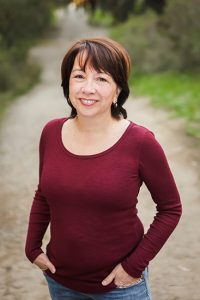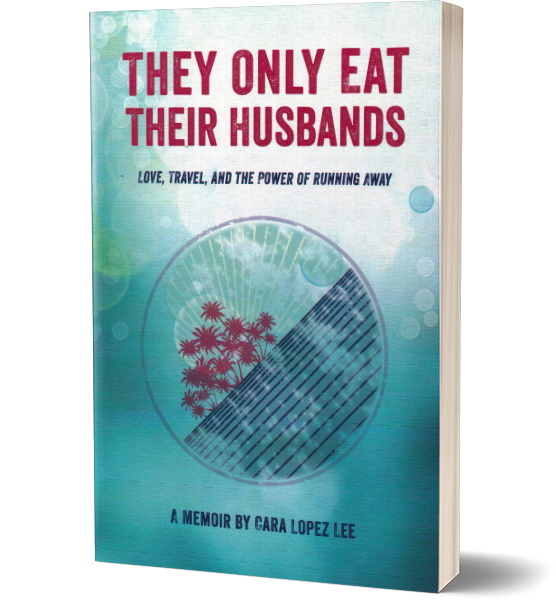I was looking for any excuse to get out of town. It was election time in Cambodia. This year marks the first time since the Khmer Rouge that the opposition party, the Cambodia National Rescue Party, has had significant support. The campaign season was crazy, with huge rallies for both sides anywhere you looked.
While it was common knowledge that the ruling party would try to rig the election, suddenly it became more of an issue. In the weeks leading to the vote, the embattled leader of the CNRP, Sam Rainsy, who had been in self-exile (that or face a long prison term in Cambodia for phantom charges), was granted a royal pardon by Hun Sen himself, and returned to the country.

Eager to avoid Phnom Penh’s election madness, we headed south to Koh Rong Island.
With my flat-mate itching for a vacation and both of us eager to avoid Phnom Penh’s election madness, we hopped in a taxi and headed south to Koh Rong Island.
The road to Sihanoukville is well taken care of. It needs to be. The main cargo shipping port is there and if trucks that carry shipping containers can’t get there, the whole economy stalls. So instead of the suspect and pothole-filled road to Siem Reap, the road to Sihanoukville is smooth and paved.
The town itself is sprawled on the hilly coast, badly organized and winding. The second stoplight arrived recently, and the roads are mostly paved these days. It’s developing quickly and haphazardly. Still, my first impression was that it was charming, with its hills and one main street. It’s still most certainly Cambodia, not yet a whitewashed, could-be-anywhere-in-the-world resort (though those are not far behind).
“Everything is shutting down for the weekend,” our driver said.
“Small sound,” said his younger brother, our guide. “No alcohol on Sunday.”
“But on the island?” my flat-mate asked.
The younger brother laughed. “Yes, okay. And big sound.”
Meanwhile, down on Sihanoukville’s Serendipity Beach, which was our next stop, there was no thought of elections. A short sloping road led down to the coast, sprawling to both sides in boardwalks and restaurants. To the left: sand beaches and restaurants patrolled by a few dozen women and children selling manicures, bracelets, and a waxing service that ingeniously uses dental floss and baby powder to remove hair. To the right: bungalows, a boardwalk of small beachside bars, and huts built into the steep hillside, which is where we stayed the first night.
Our guide wasn’t wrong. The booming bass music across the beach lasted past five a.m., about the time the rain started and drowned out the end of the party. By that point it was time to get up anyway. We were on a shuttle bus by seven, heading to the shipping port where a ferry would take us to the island. It was a quiet enough ride until we picked up a large group of still-drunk British backpackers, whose first words upon boarding the full bus were, “Sorry guys, we’re drunk as shit.”
They were covered in paint (paint!) from the previous night’s party and they filled the bus with loud, inane chatter. One of them announced loudly that the rest of us didn’t appear to be enjoying their banter. (Really, ya think?)
As we approached the industrial port, the traffic was heavy with trucks, the gloss of last night’s beach vanished. Trash filled the sidewalks. The drunk backpackers complained. “I’m not here for the slums,” one said. I thought, Then you shouldn’t have come to Cambodia. People are poor here.
When we saw the drunk backpackers occupying the top level of the boat, the rest of us went to the bottom level.
The boat ride to Koh Rong, our final destination, took three long hours. When we arrived, a chipper expat hopped aboard to inform us there would be a briefing about the island’s “activities” at the nearby guesthouse. Sensing a backpacker trap, my flat-mate and I jumped off the boat and escaped the backpacker area, filled with dorms and “As long as you’re still drinking, we’re still open” signs.

I guess an “upscale” bungalow means you pay for privacy, your own hut, and no backpackers.
I don’t understand the concept of an “upscale” bungalow, but the place we went was supposedly upscale. I guess that means you pay for privacy, your own hut, and no backpackers. The bungalow was tucked into the gently sloping hills, a short walk from the large hut that doubled as common chill-out area and restaurant, and the beach.

A large hut doubled as common chill-out area and restaurant.
After we grabbed some food and checked in, we headed for the beach to sunbathe. I forgot to check whether my sunblock was water-resistant, and woke from a nap to discover I was seriously burned. So I didn’t escape that.

We headed for the beach to sunbathe.
Although the island was isolated, the elections followed us. The kitchen was slow because half the staff had gone to the mainland to vote. When the electricity came on between six and ten at night, everyone checked Facebook and Twitter for updates.
No one knew what would happen. Another bloody coup like 2003? A hopelessly rigged election with predictable results? An angry opposition? I had enough in my bank account to buy a ticket home if need be. But I wasn’t afraid. Just watching and listening.
I’m not sure if it’s because of the elections, but I’ve been feeling unsure of where I want to be, in the world, in my life.
The second day, I spent in shade, sitting on a rock and reading, or staring at the water. It was that feeling of being lost, of having no sense of what’s next or beyond and having no choice but to just be where and when you are.
There I was, on this isolated island where I couldn’t see the mainland, and somewhere out there people were choosing a future I couldn’t fathom. Later, when it was dark and nobody was on the beach, I took a friend’s recommendation and went for a late-night, unclothed swim, which wasn’t as terrifying as I thought, deep water and darkness not being my favorite things.
The sea there has phosphorescent algae that lights up the water and leaves trails of green bubbles when you move. After I got out of the water, I spent a long time wrapped in a towel, staring out at the night and letting waves hit my feet. Everything could have changed by now, but everything was right now, and I was here, in thismoment.

Everything was right now, and I was here, in this moment.
All too soon it was time to return to Phnom Penh. The city was quiet, uneasily so. Blockades had appeared near the Prime Minister’s house and there were more soldiers than usual. But nothing else had changed, and life continued as always. You wouldn’t have thought anything happened, but for the black ink on my friends’ fingers.
The vote is over now and both sides have claimed victory, with reports of voter fraud and poll fraud and both sides pointing fingers, calling for investigations and recounts.
I have answered none of the questions I had during my time away. However, I’m deeply grateful for that time when the world was as big as the horizon and the waves were the soundtrack to shifting thoughts. I found a few wonderful moments when an uncertain, volatile future faded into the water, and all there was, was now.
***

Gillian Rhodes is from Colorado. She works in Phnom Penh, Cambodia, as a choreographer at a major television network and as an executive assistant at an arts NGO. She has been living in Phnom Penh for more than a year. She eventually plans to start a dance company.




